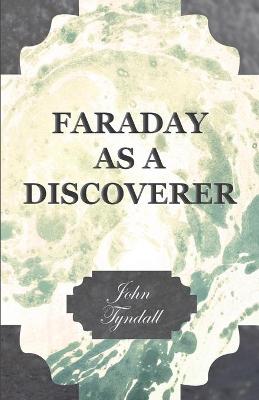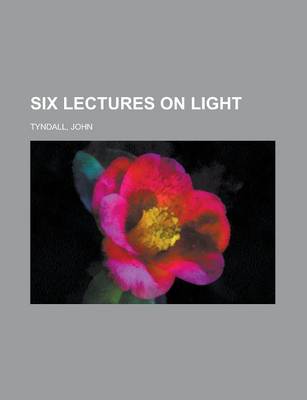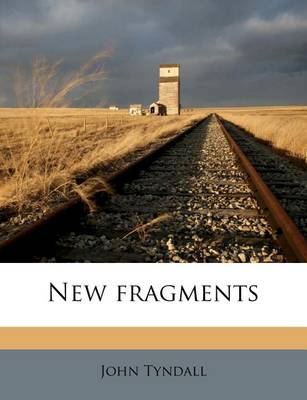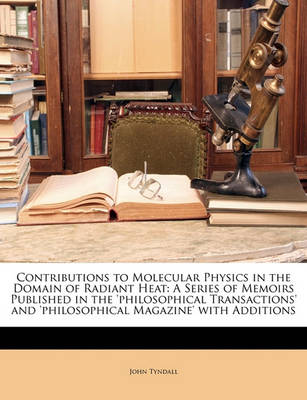Cambridge Library Collection - Physical Sciences
6 total works
Professor of natural philosophy at the Royal Institution between 1853 and 1887, the British physicist and mountaineer John Tyndall (1820-93) passionately sought to share scientific understanding with the Victorian public. A lucid and highly regarded communicator, he lectured on such topics as heat, light, magnetism and electricity. In this collection of eight lectures, first published in 1867, Tyndall explains numerous acoustic phenomena for a non-specialist audience. Emphasising the practical nature of scientific enquiry, he describes experiments throughout and includes many illustrations of laboratory equipment. The lectures discuss the general properties of sound, how it travels, how noise and music differ, how gas flames can produce musical notes, and much more. Several of Tyndall's other publications, from his work on radiant heat to his exploration of alpine glaciers, are also reissued in this series.
First published in 1868, soon after the death of Michael Faraday (1791-1867), this short work assesses the discoveries made by a humble bookbinder who became one of the foremost scientific investigators of the nineteenth century. Eminently qualified, John Tyndall (1820-93), who received Faraday's support in taking up the professorship of natural philosophy at the Royal Institution in 1853, gives an informed appraisal of a remarkable scientific career. The protege of Sir Humphry Davy, Faraday went on to carry out pioneering work in the fields of electromagnetism, diamagnetism and electrolysis. Tyndall focuses here on Faraday's research, describing his influences and how he approached his investigations, although insights into his character are also incorporated: 'Underneath his sweetness and gentleness was the heat of a volcano.' Also reissued in this series are The Life and Letters of Faraday (1870), compiled by Henry Bence Jones, and John Hall Gladstone's Michael Faraday (1872).
Born in Leighlinbridge in Ireland, John Tyndall (1820-93) was a brilliant nineteenth-century experimental physicist and gifted science educator. He worked initially as a draughtsman, then spent a year teaching at an English school before attending the University of Marburg to study physics and chemistry. Tyndall carried out important research on magnetism, light and bacteriology. Among his many significant achievements, he demonstrated the greenhouse effect in Earth's atmospheric gases using absorption spectroscopy. He was a skilled and entertaining educator and as Professor of Natural Philosophy at the Royal Institution he gave many public lectures and demonstrations of science. Published in 1873, this book features six accessible lectures on light. They explore a wide range of ideas in a non-technical way, from basic scientific theories through magnetism and light scattering, to analytical spectroscopy. The book ends with a series of essays on special topics, and includes a detailed index.
Professor of natural philosophy at the Royal Institution between 1853 and 1887, the physicist and mountaineer John Tyndall (1820–93) passionately sought to share scientific understanding with the Victorian public. A lucid and highly regarded communicator, he lectured on such topics as heat, light, magnetism and electricity. In this collection of twelve lectures, first published in 1863, Tyndall discusses the general properties of heat and its associated physical processes, such as convection, conduction and radiation. He presents concepts so that they are intelligible to non-specialists, and helpful illustrations of laboratory equipment accompany his descriptions of experiments and phenomena. Throughout, he explains the research and discoveries of renowned scientists, including Sir Humphry Davy, Julius von Mayer, James Prescott Joule, and Hermann von Helmholtz. Several of Tyndall's other publications, from his lectures on sound to his exploration of alpine glaciers, are also reissued in this series.
Born in Leighlinbridge in Ireland, John Tyndall (1820-93) was a brilliant nineteenth-century experimental physicist and gifted science educator. He worked initially as a draughtsman, then spent a year teaching at an English school before attending the University of Marburg to study physics and chemistry. Tyndall carried out important research on magnetism, light and bacteriology. Among his many significant achievements, he demonstrated the greenhouse effect in Earth's atmospheric gases using absorption spectroscopy. He was a skilled and entertaining educator and as Professor of Natural Philosophy at the Royal Institution he gave many public lectures and demonstrations of science. In this engaging potpourri of essays published in 1893, Tyndall's prose enlivens subjects as diverse as the life of Louis Pasteur, observing the Sabbath, the prevention of phthisis (tuberculosis), personal experiences of Alpine mountaineering, and the science of rainbows.
Contributions to Molecular Physics in the Domain of Radiant Heat
by John Tyndall
Published 5 January 2010
Professor of natural philosophy for the Royal Institution between 1853 and 1887, the physicist John Tyndall (1820-93) passionately sought to share scientific understanding with the Victorian public. Reissued here is the collected research he contributed to the Philosophical Transactions of the Royal Society and other journals. Published in 1872, it complements Tyndall's Heat Considered as a Mode of Motion (1863), which is also reissued in this series. Here each memoir is preceded by a short summary, explaining what he discovered and his reasons for embarking on the investigations in question. Accompanying the detailed descriptions of experimental methods are illustrations of the scientific apparatus used. Tyndall also shows how his work built upon previous research, acknowledging the insights of distinguished scientists such as William Herschel and Macedonio Melloni. In particular, he discusses at length his academic debates with Heinrich Gustav Magnus.





